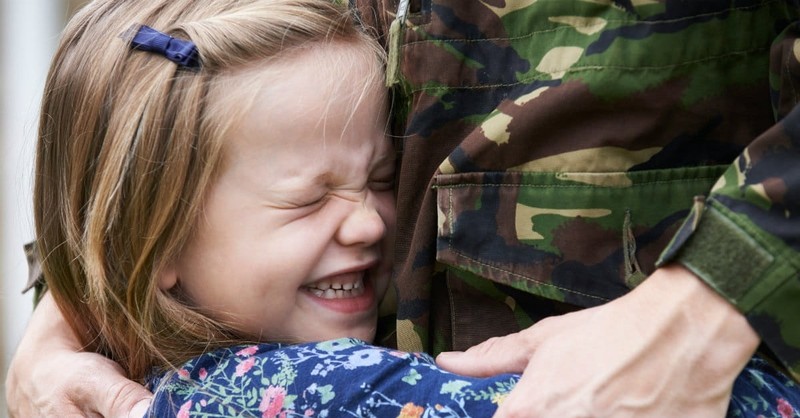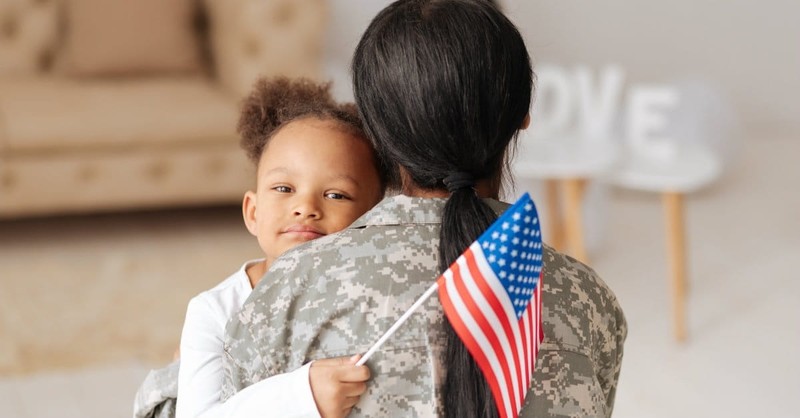If you live in a community with active duty military families but have never been a part of the military yourself it can be difficult to know how to support them. You may want to meet their unique needs but don’t know where to begin. The military family makes unique sacrifices to defend the freedoms that we all enjoy and a little bit of effort to encourage and support them goes further than you may ever know.
So what can you do?
Here are ten ways, among many, to show your support to military families:
Jeremy Stalnecker is the Director of Mighty Oaks Warrior Programs. He served as a USMC Infantry Officer in Operation Iraqi Freedom and then became a pastor when he returned to civilian life. Through Mighty Oaks, Jeremy has brought together his ministry experience and military background to serve and minister to many hurting veterans, service members and their families. Jeremy, his wife Susanne and their four children live in Central California. www.mightyoaksprograms.org/p>
Image courtesy: ©Thinkstock/videodet

1. Pray for them.
Pray for God’s provision and safety and that he, the God of all comfort, will minister to them. By remembering military families in your prayers, you are showing them that they are loved, supported, and not forgotten. You can even send them a simple note that says, “I am praying for you and your family today.” You may never know how much that simple statement means to them.
As you pray for military families, God will not only meet their needs, but will reveal in a special way other things that you can do to be a blessing to them.
Image courtesy: ©Thinkstock/4maksym

2. Don’t forget them.
Even when the whole family is together and the service member is not currently deployed, military families are often far away from extended family. This makes holidays and birthdays and other “special” days difficult. Go out of your way to include them in meals and other events that they may otherwise spend with parents, grandparents, and siblings. This becomes even more important if the service member is deployed.
Image courtesy: ©Thinkstock/flySnow

3. Be kind to the kids.
Mom and Dad are dealing with the unique stress of getting ready for a deployment, experiencing a deployment, or recovering from a deployment. While most marriages will deal with short times of separation, the military couple will spend months at a time separated. It is easy in the midst of all of this for the kids to get lost. Go out of your way to spend time with them. Remember their birthdays and include them in family activities. Encouraging the kids encourages the whole family!
Image courtesy: ©Thinkstock/Highwaystarz-Photography

4. Don’t try to empathize.
Unless you have experienced deployments and extended periods of separation don’t try to empathize. A spouse traveling for an extended business trip is not the same as a spouse traveling to a combat zone for as many as eighteen months. Your story is your story but don’t try to make it the equivalent of someone else’s story. Be there, listen, and encourage but don’t empathize. This tends to discourage and make the military family member feel more isolated than they already are.
Image courtesy: ©Thinkstock/welcomia

5. Encourage them.
Write notes, send texts, and spend time together. You do not have to do something big, just be encouraging. Let them know that you have not forgotten them, appreciate their service, and care.
When a family member is deployed, ask the rest of the family about how they are doing. If you’ve already put in the effort to spend time with them and get to know them, they will be more likely to give you an honest answer.
You can also let them know that you are willing to pray with them, if they would find that helpful. Don’t be pushy, and be considerate of their feelings if they say no. But some military families will be encouraged by your prayers.
Image courtesy: ©Thinkstock/ajr_images

6. Offer child care.
During a deployment the spouse who is still at home is, for all practical purposes, a single parent. Watching the kids, even for a few hours, can give them the time and space they need to get things done or just relax for a little while. When a spouse comes home from a deployment, giving the couple some time away from the kids to re-engage can be very helpful. Make yourself available to take care of the kids.
Image courtesy: ©Thinkstock/Wavebreakmedia

7. Do jobs around the house.
When a spouse is deployed, things around the house still need to be done. Things break and need maintenance. If you have the ability to do odd jobs or meet specific needs around the house make yourself available. This may keep relatively small things from becoming overwhelming.
If it is something that you don’t have the skill set to do, ask the military family if they would mind your church getting involved with a few projects. Chances are that you know someone who has the ability to fix a leaky sink or reattach a fallen towel bar to the wall, even if you don’t have those skills yourself.
Image courtesy: ©Thinkstock/michaeljung

8. Don’t treat them differently.
Even though they do have unique needs, the military family does not want to be isolated because of their service. Often, military families spend all of their time with other military families because others have a hard time relating to them. Recognize the unique nature of what they do but include them as you would anyone else.
This means inviting them to your neighborhood barbeque, and sitting down to talk to with them like any other friend. Encourage your children to play with their children. Help them to feel comfortable in a place where they might not stay long.
Image courtesy: ©Thinkstock/moodboard

9. Do things regularly for them to let them know you care.
-Bring dinner by once a week.
-Offer to go grocery shopping for a mom, dad, or caretaker.
-Offer to babysit one night a week or pick the kids up from school.
-Offer to help fix broken household items/appliance when possible.
-Start a book club for military spouses.
-Start a prayer group for military spouses or families who miss their loved ones.
-Call once a week to check in and ask how you can help that week.
-Host a girls night or spa day for military wives.
-Encourage your church to write letters regularly to deployed military members.
-Create a small group at your church for military spouses or family members of deployed men and women.
-Mow someone’s lawn, rake their leaves, or plant flowers in their yard.
-Walk someone’s dog, offer to let the dog out if they need to leave.
-Shovel snow off of their driveway, and check on them if the power goes out.
-Invite them over for holidays, special occasions, family events, etc.
-Put an uplifting note in their mailbox letting them know you are praying for them and are there to help.
-Don’t forget to say thank you.
Most military families won’t come right out and ask for help, so don’t be afraid to call up and ask how you can help them.
Image courtesy: ©Thinkstock/Zinkevych

10. Include them quickly.
Military families are typically only in the same place for a few years. By the time they start to make friends and build relationships it is time to move. Include them quickly into groups and gatherings so that they can build relationships with enough time to enjoy them. Go out of your way to pull them in and don’t make them wait to be accepted.
A little encouragement can go a long way in showing the military family just how thankful we are for their service to our country!
For more information please visit Mighty Oaks Warrior Programs.
Content taken from the article, “10 Wonderful Ways to Show Support for Military Families,” written by Jeremy Stalnecker. To read the text version please click the link.
Image courtesy: ©Thinkstock/michaeljung
Originally published Monday, 27 May 2024.

